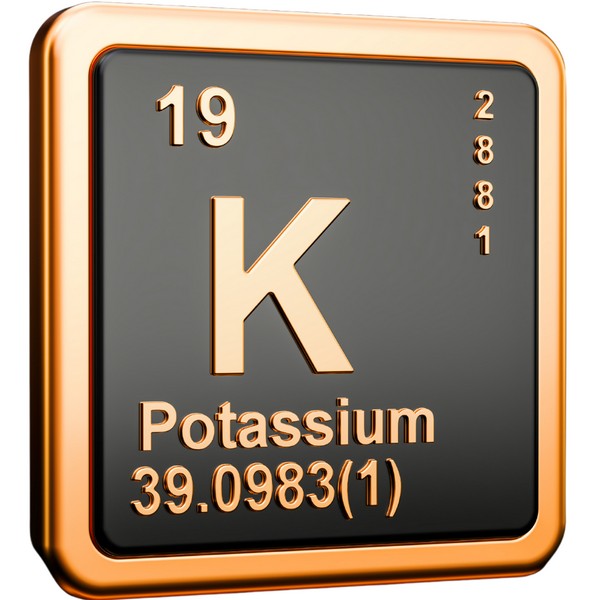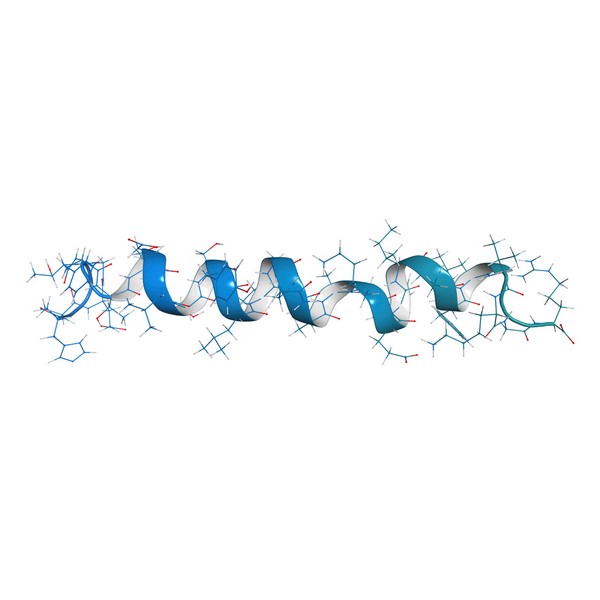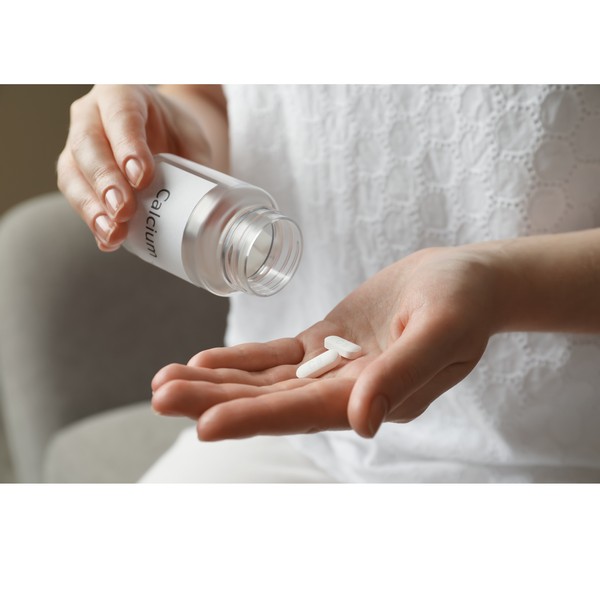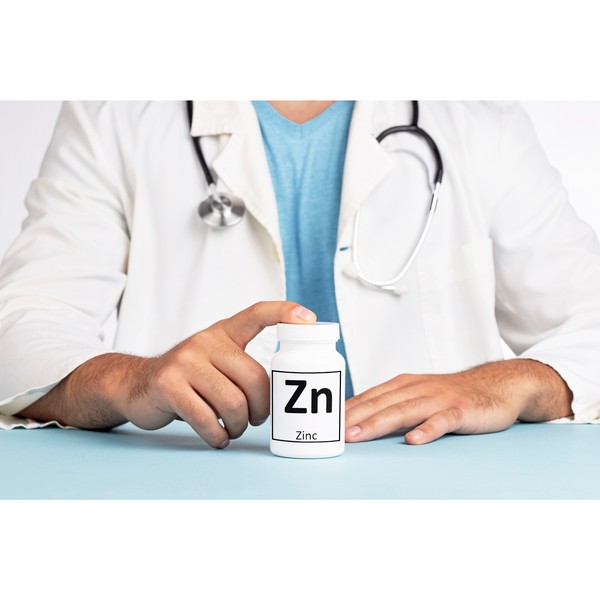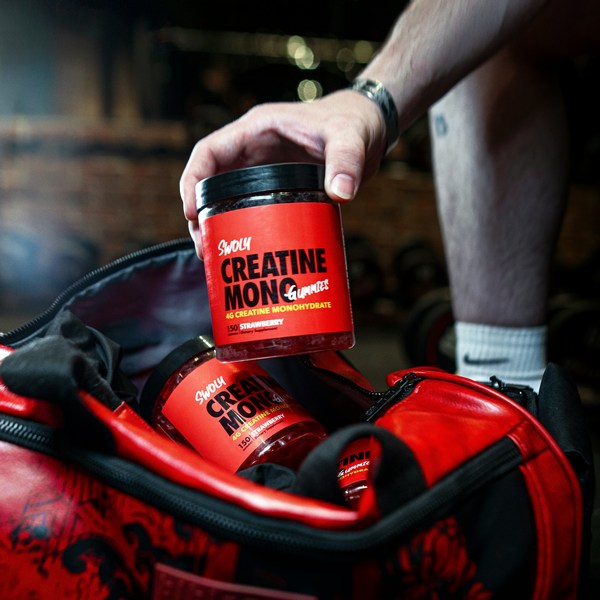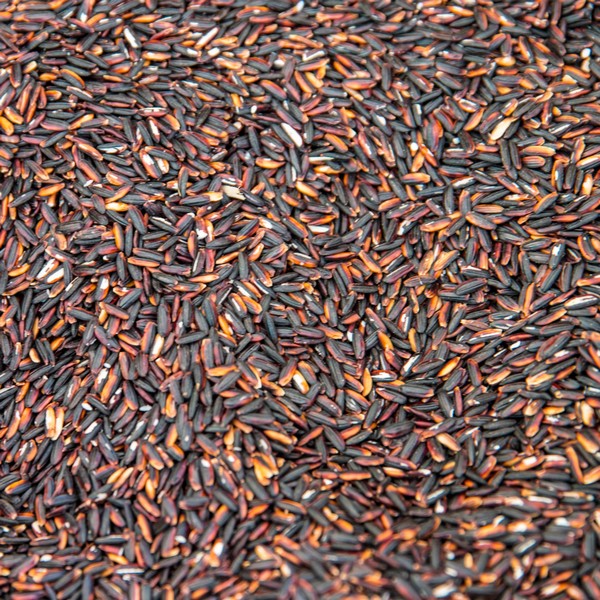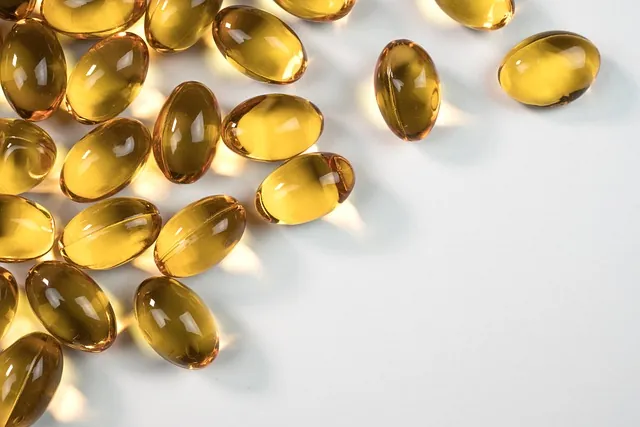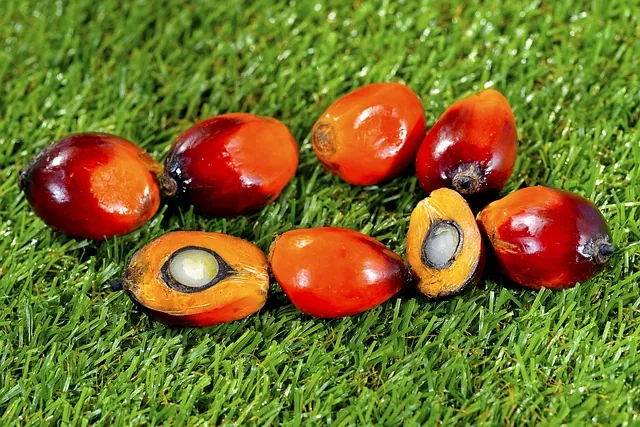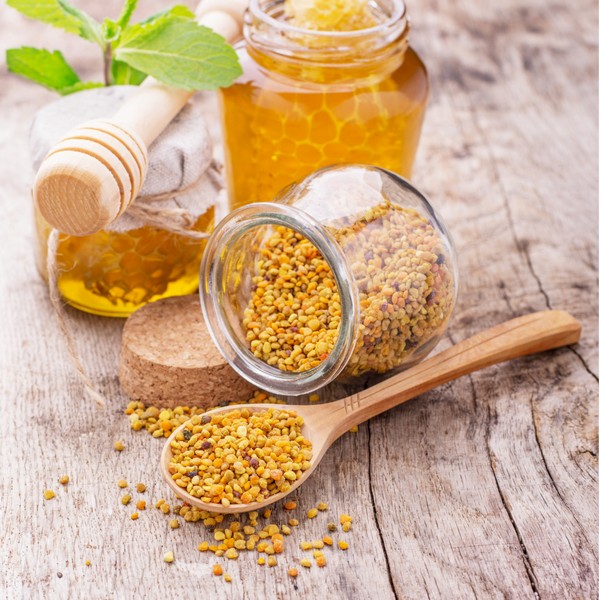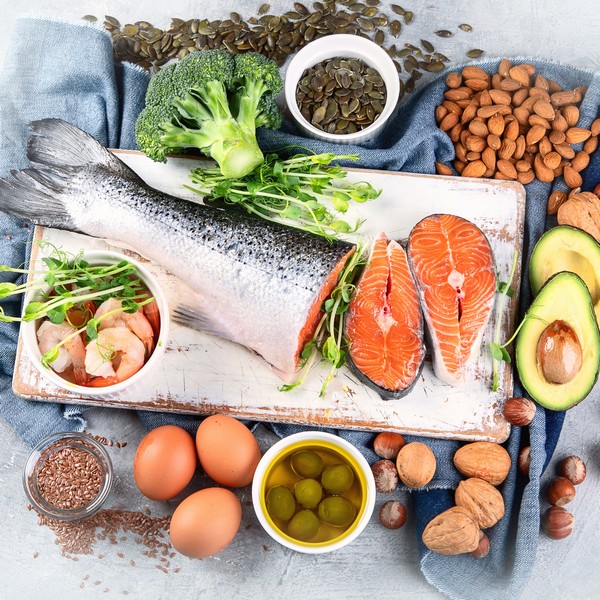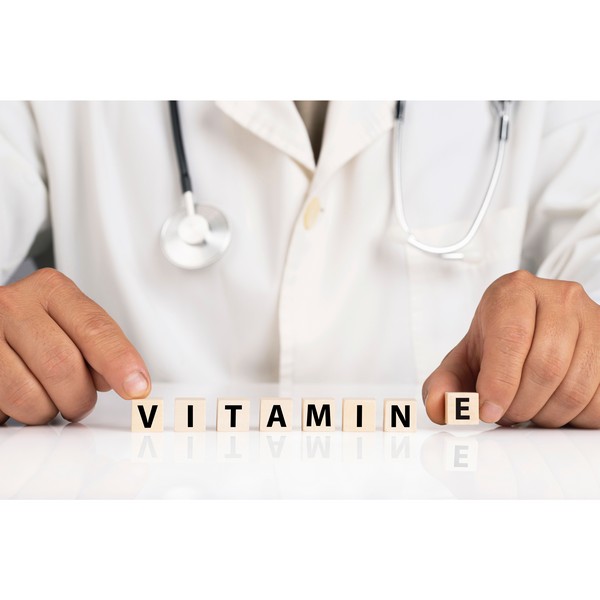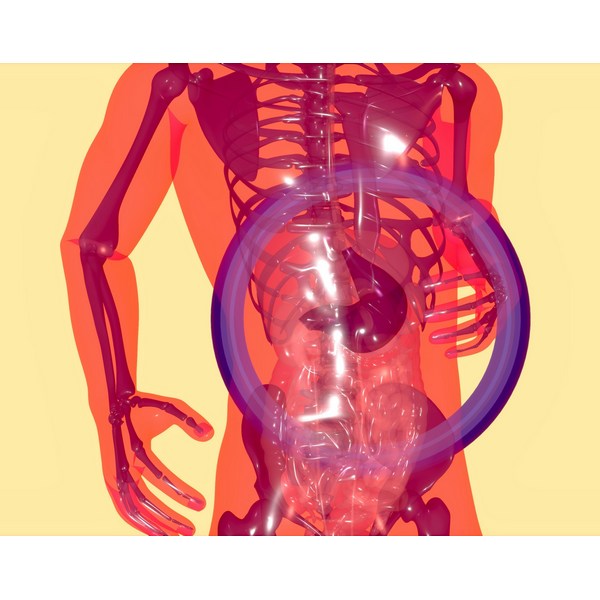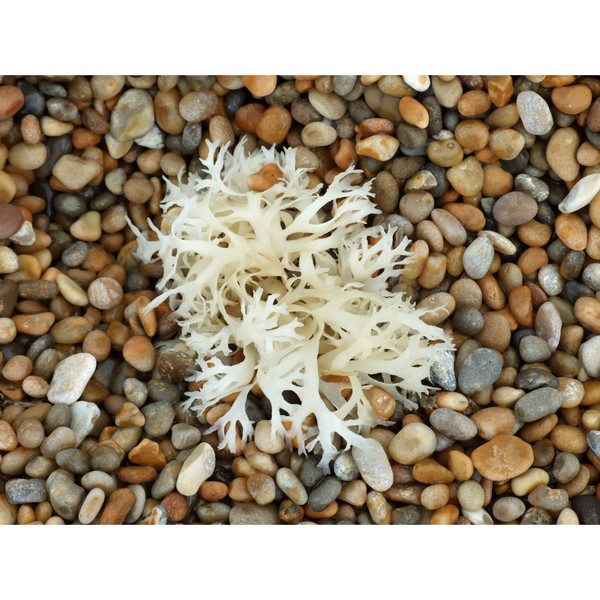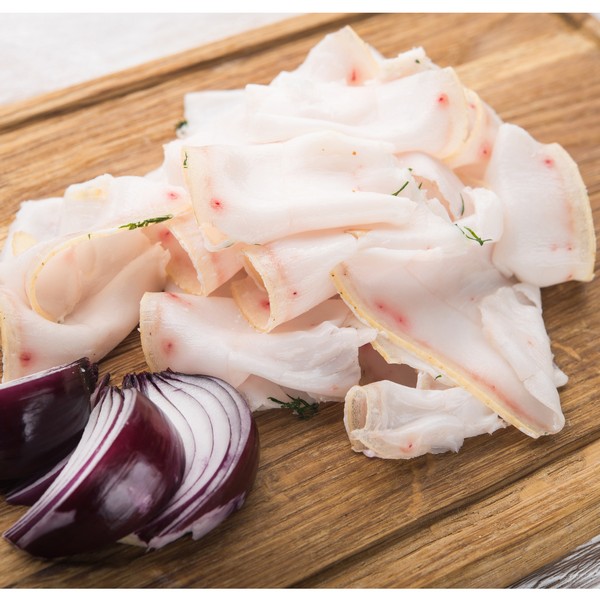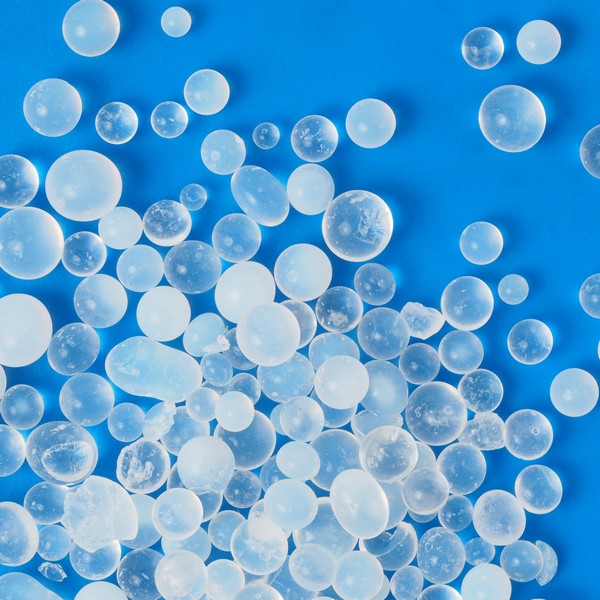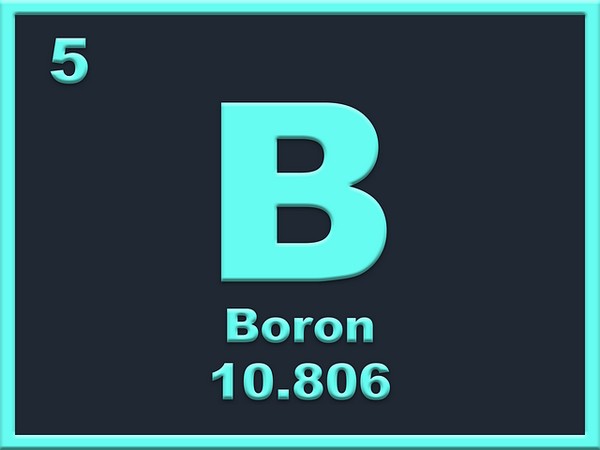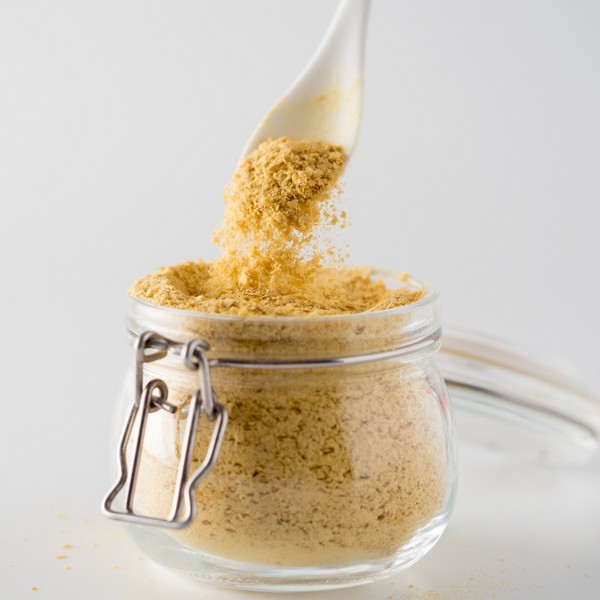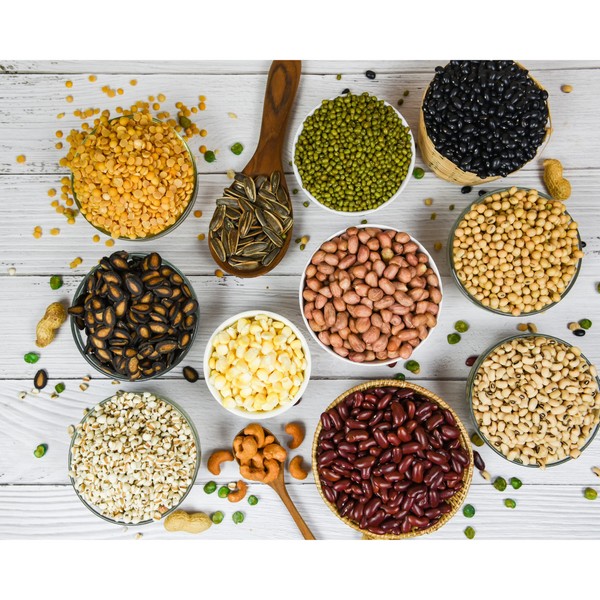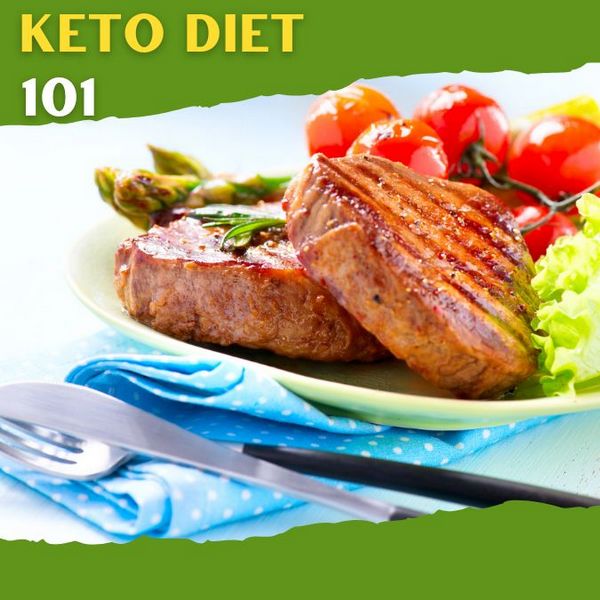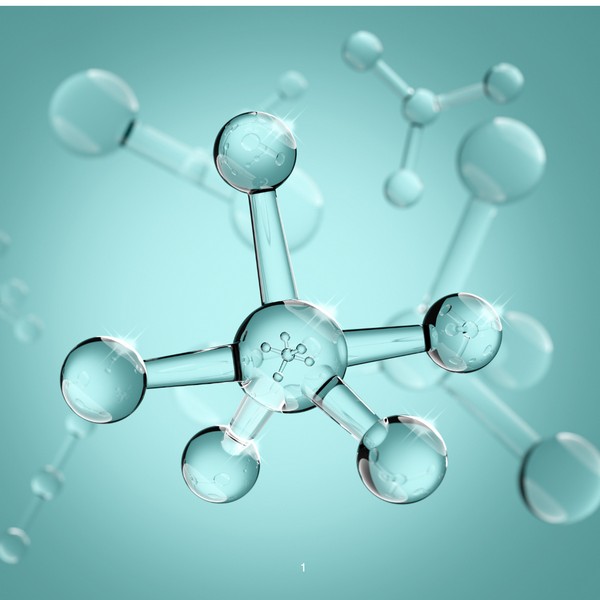Key Takeaways
- CoQ10 (Coenzyme Q10) is an antioxidant produced by the body, essential for energy production in cells.
- Levels of CoQ10 naturally decrease with age and can be further reduced by certain medications and health conditions.
- Supplementing with CoQ10 can improve heart health, support brain function, and help manage conditions like migraines and high blood pressure.
- Dietary sources of CoQ10 include fatty fish, organ meats, and some nuts and seeds.
- CoQ10 supplements are generally safe, but it’s important to consult a healthcare provider before starting them, especially if taking other medications.
Introduction to CoQ10

CoQ10, or Coenzyme Q10, is an antioxidant that the body produces naturally. It plays a key role in generating energy within cells by aiding in the production of adenosine triphosphate (ATP), the main energy carrier in the body.
CoQ10 is found in every cell, with the highest concentrations in organs that require the most energy, such as the heart, liver, and kidneys.
How CoQ10 Works in the Body
CoQ10 is primarily located in the mitochondria, the energy-producing structures within cells. It helps convert nutrients into ATP, which fuels cellular processes.
CoQ10 also acts as an antioxidant, protecting cells from damage caused by harmful molecules known as free radicals.
This dual role makes it vital for maintaining cellular health and overall well-being.
Health Benefits of CoQ10
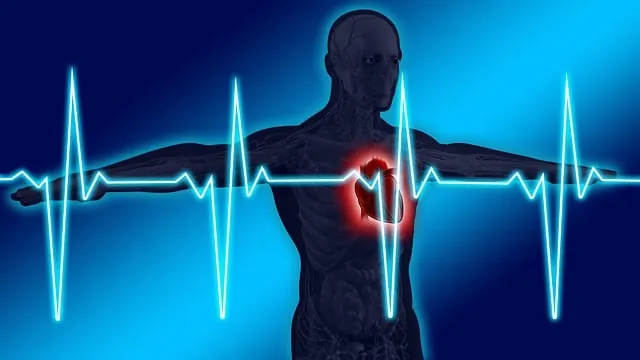
Heart Health: CoQ10 is known for supporting cardiovascular health. It improves the efficiency of energy production in heart cells and reduces oxidative stress, which can damage blood vessels and contribute to heart disease.
CoQ10 is often recommended for individuals with heart conditions, including heart failure and high blood pressure.
Energy Levels: By enhancing ATP production, CoQ10 can help boost energy levels and reduce fatigue.
This is particularly beneficial for individuals with chronic fatigue syndrome or those recovering from illness.
Brain Health: CoQ10 may have benefits for brain health, including improving cognitive function and potentially slowing the progression of neurodegenerative diseases like Alzheimer’s and Parkinson’s.
Its antioxidant properties help protect brain cells from damage.
Migraine Prevention: Some studies suggest that CoQ10 can help reduce the frequency and severity of migraines.
It’s believed to improve mitochondrial function, which may be impaired in people who suffer from migraines.
Blood Pressure Management: CoQ10 has been shown to help lower blood pressure, which is crucial for maintaining cardiovascular health and reducing the risk of heart attack and stroke.
Factors Affecting CoQ10 Levels
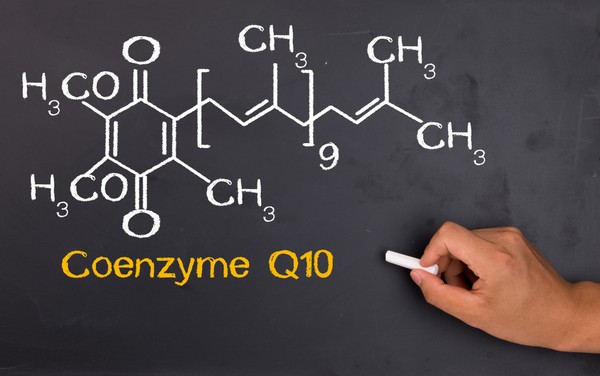
Aging: Natural production of CoQ10 declines with age, which can affect overall health and energy levels.
This decline may contribute to the increased risk of chronic diseases in older adults.
Medications: Certain medications, particularly statins used to lower cholesterol, can reduce CoQ10 levels in the body.
This reduction can lead to side effects like muscle pain and fatigue, which CoQ10 supplementation may help alleviate.
Health Conditions: Conditions such as heart disease, diabetes, and neurodegenerative disorders can lead to lower CoQ10 levels.
Supplementation may be necessary to maintain optimal levels and support overall health.
Sources of CoQ10
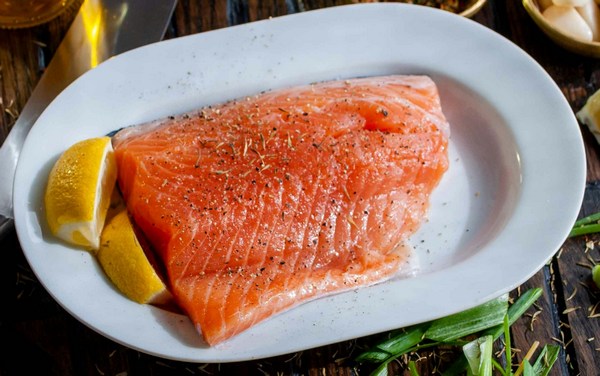
Dietary Sources: CoQ10 is naturally found in foods such as fatty fish (e.g., salmon, tuna), organ meats (e.g., liver, kidney), and certain nuts and seeds.
However, the amount of CoQ10 obtained from food is relatively low, making supplementation a practical option for many.
Supplements: CoQ10 supplements are available in two forms: ubiquinone (oxidized) and ubiquinol (reduced).
Ubiquinol is more easily absorbed and is generally recommended for older adults or those with specific health conditions.
It’s important to take CoQ10 with a meal containing fat to enhance its absorption.
CoQ10 in Disease Management
Heart Disease: CoQ10 supplementation has been shown to improve symptoms of heart failure, reduce the risk of repeat heart attacks, and improve survival rates in patients with heart disease.
It supports the heart’s energy production and reduces oxidative stress, both of which are crucial for heart health.
Diabetes: CoQ10 can help improve insulin sensitivity and manage complications associated with diabetes, such as neuropathy.
CoQ10 may help mitigate some of the effects of diabetes by reducing oxidative stress and supporting mitochondrial function.
Neurodegenerative Diseases: CoQ10 may protect against the progression of neurodegenerative diseases like Parkinson’s and Alzheimer’s.
Its role in reducing oxidative stress and supporting mitochondrial function is particularly important in the brain, where energy demand is high.
Safety and Side Effects of CoQ10
General Safety: CoQ10 is generally safe and well-tolerated by most people, even at high doses. It has a good safety profile, but it’s always best to start with a lower dose and increase gradually if needed.
Potential Side Effects: Some individuals may experience mild side effects, such as digestive discomfort, nausea, or headaches.
These effects are typically temporary and can often be managed by adjusting the dosage.
Interactions: CoQ10 may interact with certain medications, such as blood thinners and chemotherapy drugs.
It’s important to consult with a healthcare provider before starting supplementation, especially if taking other medications.
Conclusion
CoQ10 plays an essential role in cellular energy production and overall health. It supports heart health, brain function, and may help manage conditions like migraines and diabetes. As we age, and particularly if taking certain medications, maintaining adequate CoQ10 levels becomes increasingly important. Whether through diet or supplementation, ensuring sufficient CoQ10 intake can contribute to better health and improved quality of life.
FAQ
What is CoQ10 and why is it important?
CoQ10 is an antioxidant that plays a key role in cellular energy production and overall health.
How does CoQ10 benefit heart health?
CoQ10 supports cardiovascular health by improving energy production in heart cells and reducing oxidative stress.
Can CoQ10 help with migraines?
Yes, CoQ10 has been shown to reduce the frequency and severity of migraines in some individuals.
What foods are rich in CoQ10?
Fatty fish, organ meats, and certain nuts are rich dietary sources of CoQ10.
Are there any side effects of taking CoQ10 supplements?
CoQ10 supplements are generally safe but may cause mild side effects like digestive discomfort. It’s important to consult a healthcare provider before starting supplementation.
Research
Alcázar-Fabra, M., Trevisson, E. and Brea-Calvo, G., 2018. Clinical syndromes associated with Coenzyme Q10 deficiency. Essays in Biochemistry, [online] 62(3), pp.377–398. https://doi.org/10.1042/ebc20170107.
Alf, D., Schmidt, M.E. and Siebrecht, S.C., 2013. Ubiquinol supplementation enhances peak power production in trained athletes: a double-blind, placebo controlled study. Journal of the International Society of Sports Nutrition, 10, pp.1-8.
Bentinger, M., Brismar, K., & Dallner, G. (2007). The antioxidant role of coenzyme Q. Mitochondrion, 7, S41-S50.
https://doi.org/10.1016/j.mito.2007.02.006
Carlos, J., Cortés, A. B., M., D. J., & Navas, P. Biochemical Assessment of Coenzyme Q10 Deficiency. Journal of Clinical Medicine, 6(3), 27.
https://doi.org/10.3390/jcm6030027
Diaz-Castro, J., Mira-Rufino, P.J., Moreno-Fernandez, J., Chirosa, I., Chirosa, J.L., Guisado, R. and Ochoa, J.J., 2020. Ubiquinol supplementation modulates energy metabolism and bone turnover during high intensity exercise. Food & function, 11(9), pp.7523-7531.
Doimo, M., Desbats, M.A., Cerqua, C., Cassina, M., Trevisson, E. and Salviati, L., 2014. Genetics of coenzyme q10 deficiency. Molecular syndromology, 5(3-4), pp.156-162.
Emmanuele, V., López, L.C., Berardo, A., et al., 2012. Heterogeneity of Coenzyme Q10 Deficiency: Patient Study and Literature Review. Arch Neurol., 69(8), pp.978–983. https://doi.org/10.1001/archneurol.2012.206.
Forsberg, E., Xu, C., Grünler, J., Frostegård, J., Tekle, M., Brismar, K. and Kärvestedt, L., 2015. Coenzyme Q10 and oxidative stress, the association with peripheral sensory neuropathy and cardiovascular disease in type 2 diabetes mellitus. J Diabetes Complications, 29(8), pp.1152-1158. https://doi.org/10.1016/j.jdiacomp.2015.08.006.
Gutierrez-Mariscal, F.M., Arenas-de Larriva, A.P., Limia-Perez, L., Romero-Cabrera, J.L., Yubero-Serrano, E.M. and López-Miranda, J., 2020. Coenzyme Q10 supplementation for the reduction of oxidative stress: Clinical implications in the treatment of chronic diseases. International journal of molecular sciences, 21(21), p.7870.
Ho, C.-C., Chang, P.-S., Chen, H.-W., Lee, P.-F., Chang, Y.-C., Tseng, C.-Y. and Lin, P.-T., 2020. Ubiquinone Supplementation with 300 mg on Glycemic Control and Antioxidant Status in Athletes: A Randomized, Double-Blinded, Placebo-Controlled Trial. Antioxidants, [online] 9(9), p.823.
https://doi.org/10.3390/antiox9090823.
Kinoshita, T., Maruyama, K. and Tanigawa, T., 2016. The Effects of Long-Term Ubiquinol Intake on Improving the Quality of Life of Community Residents. Functional Foods in Health and Disease, [online] 6(1), p.16. https://doi.org/10.31989/ffhd.v6i1.225.
Langsjoen, P. H. and Langsjoen, A. M., 2014. Comparison study of plasma coenzyme Q10 levels in healthy subjects supplemented with ubiquinol versus ubiquinone. Clinical Pharmacology in Drug Development, 3(1), pp.13-17. https://doi.org/10.1002/cpdd.73.
Malm, C., Svensson, M., Ekblom, B. and Sjödin, B., 1997. Effects of ubiquinone‐10 supplementation and high intensity training on physical performance in humans. Acta Physiologica Scandinavica, 161(3), pp.379-384.
Orlando, P., Silvestri, S., Galeazzi, R., Antonicelli, R., Marcheggiani, F., Cirilli, I., Bacchetti, T. and Tiano, L., 2018. Effect of ubiquinol supplementation on biochemical and oxidative stress indexes after intense exercise in young athletes. Redox Report, 23(1), pp.136-145.
Potgieter, M., Pretorius, E., & Pepper, M. S. (2013). Primary and secondary coenzyme Q10 deficiency: The role of therapeutic supplementation. Nutrition Reviews, 71(3), 180-188.
https://doi.org/10.1111/nure.12011
Quinzii, C.M., Hirano, M. and DiMauro, S., 2007. CoQ10 deficiency diseases in adults. Mitochondrion, 7, pp.S122-S126.
Quinzii, C.M. and Hirano, M., 2011. Primary and secondary CoQ10 deficiencies in humans. Biofactors, 37(5), pp.361-365.
Sarmiento, A., Diaz‐Castro, J., Pulido‐Moran, M., Moreno‐Fernandez, J., Kajarabille, N., Chirosa, I., Guisado, I.M., Javier Chirosa, L., Guisado, R. and Ochoa, J.J., 2016. Short‐term ubiquinol supplementation reduces oxidative stress associated with strenuous exercise in healthy adults: A randomized trial. Biofactors, 42(6), pp.612-622.
Samimi, F., Namiranian, N., Sharifi-Rigi, A., Siri, M., Abazari, O. and Dastghaib, S., 2024. Coenzyme Q10: A Key Antioxidant in the Management of Diabetes-Induced Cardiovascular Complications-An Overview of Mechanisms and Clinical Evidence. Int J Endocrinol., 2024:2247748. https://doi.org/10.1155/2024/2247748.
Zhang, Y., Liu, J., Chen, X.Q. and Chen, C.Y.O., 2018. Ubiquinol is superior to ubiquinone to enhance Coenzyme Q10 status in older men. Food & function, 9(11), pp.5653-5659.
Potassium: Benefits & Sources
Key Takeaways Potassium is essential for regulating fluid balance, nerve signals, and muscle function. It supports heart health and helps maintain proper blood pressure. Adequate…
Magnesium: Better Sleep, Stress Relief and More
How Collagen Supports Healthy Skin, Joints, and More
Increase GLP-1 Agonists Naturally
Calcium Supplements: What You Need to Know
Key Takeaways Calcium supplements have been linked to heart disease and kidney stones. Excess calcium from supplements can lead to imbalances and health issues. Natural…
Zinc Supplements: Risks and Dangers
Key Takeaways Zinc supports immunity, wound healing, and cell growth. High zinc supplement doses can cause health problems. Always consult a healthcare provider before taking…
Creatine Myths Debunked: Separating Fact from Fiction
Key Takeaways Common myths about creatine, such as it causing kidney damage, weight gain, and being a steroid, are widespread but unsupported by scientific evidence….
Eggs: A Comprehensive Guide
Key Highlights Eggs are a nutritional powerhouse, containing all the essential vitamins and minerals needed for overall health. Vital role in a balanced diet, providing…
The Impact of Ultra-Processed Foods on Your Wellbeing
Every bite we take is a step toward either wellness or illness. In our fast-paced world, ultra-processed foods have become a staple, silently shaping our…
How Stabilized Rice Bran Supports Digestive & Heart Health
Key Takeaways – Stabilized rice bran is a nutrient-rich source of vitamins, minerals, and antioxidants. – The stabilization process prevents rancidity, making it a long-lasting…
How Cod Liver Oil Can Transform Your Health and Wellness
Cod liver oil has been used for centuries as a natural remedy for various health conditions. Packed with essential nutrients and fatty acids, cod liver…
13 Most Dangerous Foods Revealed
Key Highlights Fugu, or pufferfish, is one of the most poisonous foods in the world, with its organs containing a neurotoxin that can paralyze motor…
Red Palm Oil: Unveiling The Potent Health Benefits
Struggling to find the right oil for your health and kitchen? Red palm oil is packed with nutrients that might just be what you need….
Protein: You probably need more
Key Takeaways Protein is needed for building and repairing body tissues. It supports muscle growth, immune function, and hormone production. Bioavailable sources of protein include…
Bee Pollen: Nature’s Secret Superfood
Key Takeaways Bee pollen is packed with essential nutrients and offers numerous health benefits. It supports immune function, boosts energy, and promotes overall well-being. Adding…
Trimethylglycine TMG: Betaine Anhydrous Explained
Key Takeaways Betaine Anhydrous (TMG) is a compound found naturally in various foods and offers several health benefits. TMG supports liver health by reducing fatty…
Vitamin A (Retinol): Essential Nutrient for Health
Key Takeaways: Natural Vitamin A, also known as Retinol, is crucial for vision, immune function, and skin health. Retinol is essential for healthy vision, particularly…
ALA vs. DHA & EPA Omega-3: Why Source Matters
Key Takeaways ALA (Alpha-Linolenic Acid) is found in flaxseeds, chia seeds, and walnuts, but converts poorly to DHA and EPA. DHA and EPA are critical…
Vitamin E Complex
Key Takeaways Vitamin E is a powerful antioxidant that protects cells from oxidative damage, reducing the risk of chronic diseases. The vitamin E complex includes…
L-Glutamine and Gut Health: Benefits and Side Effects
Key Takeaways L-Glutamine is essential for gut health. Benefits include improved digestion and reduced inflammation. Potential side effects are rare but can occur in high…
11 Electrifying Health Benefits of Trace Minerals
What are Trace Minerals?The Major Roles of Trace MineralsSources of Trace MineralsDeficiencies in Trace MineralsThe Impact of Trace Minerals on Specific Health ConditionsFrequently Asked Questions…
6 Best Natural Ways to Manage Your Blood Sugar: A Quick & Easy Guide
1. Intermittent fasting2. Exercise3. Dietary fiber4. Sleep5. Weight loss6. SupplementationBioclinic NaturalsPGX BiotiquestSugar Shift Every time you eat it, it’s plotting something sinister. Sugar isn’t as…
Postbiotics: What They Are and Why They Are Important
Key Takeaways Postbiotics 101: They’re beneficial by-products from probiotics that consume prebiotics Boosts Immunity: Postbiotics sharpen your immune system, helping fight off pathogens and reducing…
TUDCA Benefits for Health
Key Takeaways TUDCA promotes liver health, aiding cell protection and repair. Enhances digestion by improving bile flow and supporting gut health. May protect brain health…
L-Carnitine: Benefits, Dosage, and Side Effects
Key Takeaways L-Carnitine supports fat metabolism and energy production. Benefits include enhanced exercise performance and improved heart health. Proper dosing minimizes potential side effects. Understanding…
Benefits of Sea Moss Explained
Key Takeaways Rich in Nutrients: Sea moss is packed with essential vitamins, minerals, and antioxidants, supporting overall health and wellness. Supports Immune Function: Its high…
8 Key Signs of Nutrient Deficiency
Key Takeaways Magnesium: A multitasker that aids in over 300 biochemical reactions in the body. Copper: Supports neurological function, cardiovascular and immune system health, iron…
Berberine Has 11 More Incredible Benefits Than You Thought
Berberine is a compound found in several plants that has been used for centuries in traditional Chinese medicine and Ayurveda. It has recently gained popularity…
Spirulina: Health Benefits and Uses
Key Takeaways Spirulina boosts immune function with its high nutrient content and antioxidant properties. Rich in proteins and essential vitamins, enhances overall nutrition. Helps reduce…
5 Major Benefits of Omega-3 Fatty Acids
Key Takeaways Omega-3 fatty acids support heart health by reducing triglycerides and lowering blood pressure. They play an important role in brain function and development,…
Whole Food Vitamin C Complex: Expert Tips for Health
Key Highlights Whole food vitamin C complex is essential for a strong immune system and overall health. Unlike synthetic ascorbic acid, whole food vitamin C…
5-HTP: Natural Ways to Boost Serotonin and Improve Mood
Key Takeaways: 5-HTP is a natural compound that helps boost serotonin levels in the brain. It can support mood regulation, sleep improvement, and stress reduction….
What You Need to Know About Salt and Your Health
Table of ContentsThe Health Benefits of Unrefined Sea SaltElectrolyte BalanceMineral ContentImproved HydrationBoosted Energy LevelsImmune SupportImproved DigestionBalanced pH LevelsReduced Water RetentionHeart Health SupportStronger Bones and TeethEnhanced…
Tallow: Benefits, Uses, and Nutrition
Key Takeaways: Tallow is a nutrient-rich animal fat with many practical uses. It contains valuable vitamins such as A, D, E, and K. Tallow is…
Silica: for Healthier Skin, Hair, and Nails
Key Takeaways: Silica supports strong and healthy skin, hair, and nails. It promotes bone health by boosting collagen production. Silica helps improve joint flexibility and…
Copper: Little-Known Health Benefits
Key Takeaways Copper is an essential trace mineral with benefits, including ceruloplasmin production, energy production and antioxidant properties. Copper is critical for brain health by…
Cholesterol Misconceptions: Separating Fact from Fiction
Key Takeaways: High inflammation and blood pressure are major risk factors for heart disease. Cholesterol is vital for hormone production, cell membrane structure, and digestion,…
Boron: Benefits of a Lesser-Known Mineral
Key Takeaways Boron is a trace mineral with significant health benefits. It supports brain function, bone health, and hormonal balance. Understanding boron’s role can improve…
Benefits of Nutritional Yeast
Key Takeaways Nutritional yeast is a rich source of vitamins and minerals. It supports immune function and promotes skin health. Its cheesy flavor makes it…
Liver: 5 Surprising Benefits Backed by Science
Hold on! Don’t run away! You need to read this. Liver is a highly nutritious organ meat that is often overlooked in modern diets. Packed…
Allulose: The Best Sugar Alternative
Key Takeaways Allulose is a low-calorie sweetener found naturally in some fruits. It does not raise blood sugar levels, making it suitable for diabetics. Allulose…
Conjugated Linoleic Acid (CLA): Benefits & Sources
Key Takeaways CLA is a type of fatty acid found primarily in animal products like beef and dairy. Known for potential benefits such as weight…
Carnivore Diet: Benefits, Risks, Food List & More
Key Takeaways The carnivore diet is a keto diet that only allows for animal-based foods, and has potential health benefits. Tips for success include hydrating,…
Grains & Legumes Secretly Harming Your Health? Find Out Now!
Key Takeaways: – Grains and legumes contain antinutrients like lectins and phytic acid, which can interfere with nutrient absorption. – These foods may trigger digestive…
Keto Diet 101: A Complete Beginner’s Guide
Key Highlights The ketogenic diet is a low-carb, high-fat diet that can lead to weight loss and has many health benefits. By reducing carbohydrate intake…
Actual Superfoods: Real Foods You Should Be Eating
Key Takeaways Superfoods are nutrient-dense foods, offering essential vitamins, minerals, and fats. Prioritize high-quality sources for optimal nutrition. They support overall health, boost energy, and…
Do This! The Ultimate Guide to Fasting Safely and Effectively
In our increasingly busy lives, finding time to take care of our bodies can often take a backseat. One method that has gained attention recently…
Is Eating Sugar Really That Bad For Your Health?
Should You Really Be Concerned? In short, YES! Thank you, that’s all folks, and do have a good evening. Seriously though, extensive research has established…
Medium Chain Triglycerides (MCTs): Uncovering 5 Health Benefits
This potent, natural source of energy has gained considerable attention in recent years for its impressive array of benefits. MCT oil is a versatile addition…
Natural Treatment for Irritable Bowel Syndrome (IBS): Effective Remedies Explored
Understanding IBSSymptoms of IBSRole of Diet in IBSNatural Remedies for IBSSupplements for IBSRole of Probiotics in IBSFrequently Asked Questions Understanding IBS Irritable Bowel Syndrome (IBS)…
Healthy Fat: is Butter Better?
Key Takeaways Saturated fats, like those found in butter, may not be as harmful as once thought and can be part of a healthy diet….
Taurine: The Mighty Amino Acid for Optimal Health
Key Takeaways Taurine supports heart health, regulates blood pressure, and reduces oxidative stress. Essential for muscle function, brain health, and cognitive function. Aids in insulin…
Iron Overload: Symptoms & Prevention Tips
Key Takeaways: Iron overload happens when the body absorbs excessive iron, which can damage organs. Common symptoms include fatigue, joint pain, and skin changes. Early…
